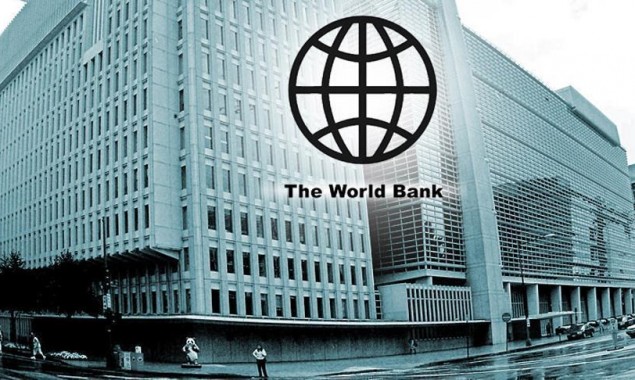World Bank Lists Ehsaas Cash Programme Among 4 Top Social Protection Plans
The World Bank has ranked Ehsaas Cash Programme among the top four...

World Bank Photo: File
KARACHI: The Executive Board of the World Bank has approved a financing of $442 million to support Pakistan in improving access to water and sanitation services for the vulnerable rural communities in Punjab, a statement received here on Saturday said.
The Punjab Rural Sustainable Water Supply and Sanitation Project (PRSWSSP) will help upgrade water supply and sanitation infrastructure and services that ensure equitable and sustainable access to drinking water and safe wastewater management.
The project prioritises rural settlements, where water contamination and poor sanitation practices are more prevalent, causing high levels of illness and child stunting.
“PRSWSSP will help more than six million rural residents in the poorest districts of Punjab to reduce child stunting and address areas at high risk to droughts and water scarcity,” World Bank Country Director for Pakistan Najy Benhassine said.
“The World Bank is committed to the government in improving sustainable water resource management. This project will support investments that increase climate resilience, including flood protection, rainwater harvesting and water conservation in these districts.”
The project will implement tailored, cost-effective solutions for both large and small rural settlements, using scalable technologies that help facilitate solid and animal waste management at the household and community levels. It will also establish a water-quality monitoring system to ensure compliance with the national standards for drinking water and wastewater.
The Punjab Rural Sustainable Water Supply and Sanitation Project will promote safe water handling, hygiene, and water conservation practices at the household level, with a focus on maternal, newborn and child health.
“The project is expected to yield substantial benefits to rural communities. It will help improve the health outcomes by reducing waterborne illnesses and ensure service quality and customer care through a financially sustainable public company,” Task Team Leader for the project Farhan Sami said.
The project will cover 16 districts, with 50 per cent of districts drawn from south Punjab, and 25 per cent each from central and north Punjab, benefitting 2,000 villages and more than six million people in the rural areas. It will also provide training of village councils and community caretakers, which will have complementary responsibilities for operations and maintenance, monitoring and evaluation, and customer services.
“Child stunting is endemic and a huge constraint on Pakistan’s potential,” co-Task Team Leader for the project Ghazala Mansuri said. “It impacts a child’s cognitive development and immune system, reducing educational attainment, making illness more likely, and leading to lower productivity and income. Its effects are inter-generational, transmitted from parent to child. This project would provide the template for a transformational shift in human capital accumulation since it addresses all the determinants of stunting.”
The project design was informed by a 2018 flagship report, “When Water Becomes a Hazard: A Diagnostic Report on The State of Water Supply, Sanitation and Poverty in Pakistan and Its Impact on Child Stunting” that examined linkages in Pakistan between water and sanitation services, and child stunting.
The study also supported environmental sustainability and the need to provide information and support behavioural change in poor rural communities to reduce health risks.
Pakistan has been a member of the World Bank since 1950. Since then, the World Bank has provided $40 billion in assistance. The World Bank’s programme in Pakistan is governed by the Country Partnership Strategy for FY 2015/20 with four priority areas of engagement: energy, private sector development, inclusion, and service delivery. The current portfolio has 57 projects and a total commitment of $13 billion.
Catch all the International News, Pakistan News, Breaking News Event and Latest News Updates on The BOL News
Download The BOL News App to get the Daily News Update & Follow us on Google News.